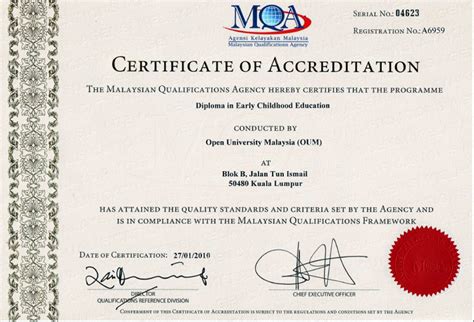Passing Rates: A Statistical Perspective
The bar exam is notoriously challenging, with varying passing rates across jurisdictions. According to the National Conference of Bar Examiners (NCBE):

| Jurisdiction | Passing Rate (2022) |
|---|---|
| California | 47.5% |
| New York | 62.2% |
| Florida | 50.2% |
| Illinois | 57.2% |
| Texas | 69.3% |
These rates indicate that, on average, only around half of bar exam takers pass on their first attempt.
Difficulty Factors: Assessing the Challenge
The difficulty of the bar exam stems from a combination of factors, including:
Content Coverage
The exam covers a vast amount of legal knowledge, including subjects such as constitutional law, criminal procedure, and property law.
Ambiguous Questions
Exam questions are often ambiguous and require critical thinking skills to interpret and answer correctly.
Time Constraints
Test-takers are given a limited amount of time to complete multiple-choice and essay questions, adding to the pressure and difficulty.
High Stakes
The bar exam serves as the gatekeeper to the legal profession, making the stakes incredibly high for those taking it.
Common Mistakes to Avoid: Lessons from the Trenches
To increase your chances of success, it’s crucial to avoid common pitfalls that many bar exam takers fall into:
Underestimating the Time Commitment
The bar exam requires a significant time investment for preparation. Don’t underestimate the number of hours you’ll need to dedicate to studying.
Lack of Practice
Regular practice is essential for mastering the material and building stamina for the exam. Take practice questions and time yourself to improve your efficiency.
Ignoring Essay Questions
Essay questions carry a significant weight in the overall score. Dedicate ample time to practicing writing well-organized and persuasive essays.
Falling into the Comparison Trap
Comparing yourself to others can be discouraging. Focus on your own progress and avoid getting caught up in the performance of others.
Neglecting Mental Health
The bar exam can be an emotionally and mentally taxing experience. Prioritize your mental health by getting enough sleep, exercising, and seeking support when needed.
Effective Strategies: Maximizing Your Chances
Start Early and Stay Consistent
Begin preparing well in advance of the exam date. Establish a regular study schedule and stick to it religiously.
Use High-Quality Materials
Invest in reputable study materials, including textbooks, outlines, and practice questions.
Form a Study Group
Collaborating with other bar exam candidates can provide support, accountability, and a different perspective on the material.
Seek Professional Help if Needed
If you encounter difficulties or feel overwhelmed, don’t hesitate to seek guidance from a bar exam tutor or coach.
Break Down the Material
Divide the vast amount of material into smaller, manageable sections. Focus on understanding the core concepts rather than memorizing every detail.
Use Active Learning Techniques
Engage with the material actively by taking notes, completing practice questions, and explaining concepts to yourself or others.
Manage Your Time Wisely
Learn to budget your time efficiently during the exam. Use a time-management strategy that works for you, such as the Pomodoro Technique.
Take Breaks and Reward Yourself
Regular breaks and rewards can help maintain motivation and prevent burnout. Reward yourself for completing study sessions or achieving milestones.
Stay Positive and Believe in Yourself
A positive attitude can make a significant difference. Believe in your ability to succeed and approach the exam with confidence.
Conclusion: Embracing the Challenge
The bar exam is an undoubtedly challenging endeavor, but it’s also an opportunity to demonstrate your legal knowledge, critical thinking skills, and determination. By understanding the difficulty factors, avoiding common mistakes, and embracing effective strategies, you can increase your chances of success and join the ranks of licensed attorneys.
Remember, every lawyer has passed the bar exam before you. With hard work, dedication, and a belief in yourself, you too can overcome this hurdle and embark on a rewarding career in law.
Tables
Table 1: Bar Exam Passing Rates by Jurisdiction (2022)
| Jurisdiction | Passing Rate |
|---|---|
| California | 47.5% |
| New York | 62.2% |
| Florida | 50.2% |
| Illinois | 57.2% |
| Texas | 69.3% |
Table 2: Common Mistakes to Avoid on the Bar Exam
| Mistake | Impact |
|---|---|
| Underestimating the time commitment | Reduced study efficiency and increased stress |
| Lack of practice | Difficulty in answering questions and managing time |
| Ignoring essay questions | Lower overall score and reduced chances of passing |
| Falling into the comparison trap | Discouragement and reduced motivation |
| Neglecting mental health | Impaired focus and increased stress |
Table 3: Effective Bar Exam Preparation Strategies
| Strategy | Benefits |
|---|---|
| Start early and stay consistent | Increased understanding of material and reduced cramming |
| Use high-quality materials | Access to comprehensive and reliable resources |
| Form a study group | Support, accountability, and diverse perspectives |
| Seek professional help if needed | Guidance and support from experienced professionals |
| Break down the material | Improved comprehension and organization |
| Use active learning techniques | Enhanced retention and understanding |
| Manage your time wisely | Reduced stress and increased efficiency |
| Take breaks and reward yourself | Maintained motivation and focus |
| Stay positive and believe in yourself | Improved confidence and reduced anxiety |
Table 4: Bar Exam Preparation Timeline
| Phase | Duration |
|---|---|
| Early Preparation (12+ months before the exam) | Establish a study schedule, choose materials, and form a study group |
| Focused Preparation (6-12 months before the exam) | Delve into the core material, practice questions, and seek professional help if needed |
| Intensive Preparation (3-6 months before the exam) | Review material, practice exams, and refine essay-writing skills |
| Final Preparation (1-3 months before the exam) | Focus on weak areas, practice time management, and maintain motivation |
| Pre-Exam Preparation (1-2 weeks before the exam) | Review notes, practice questions, and get plenty of rest |
















